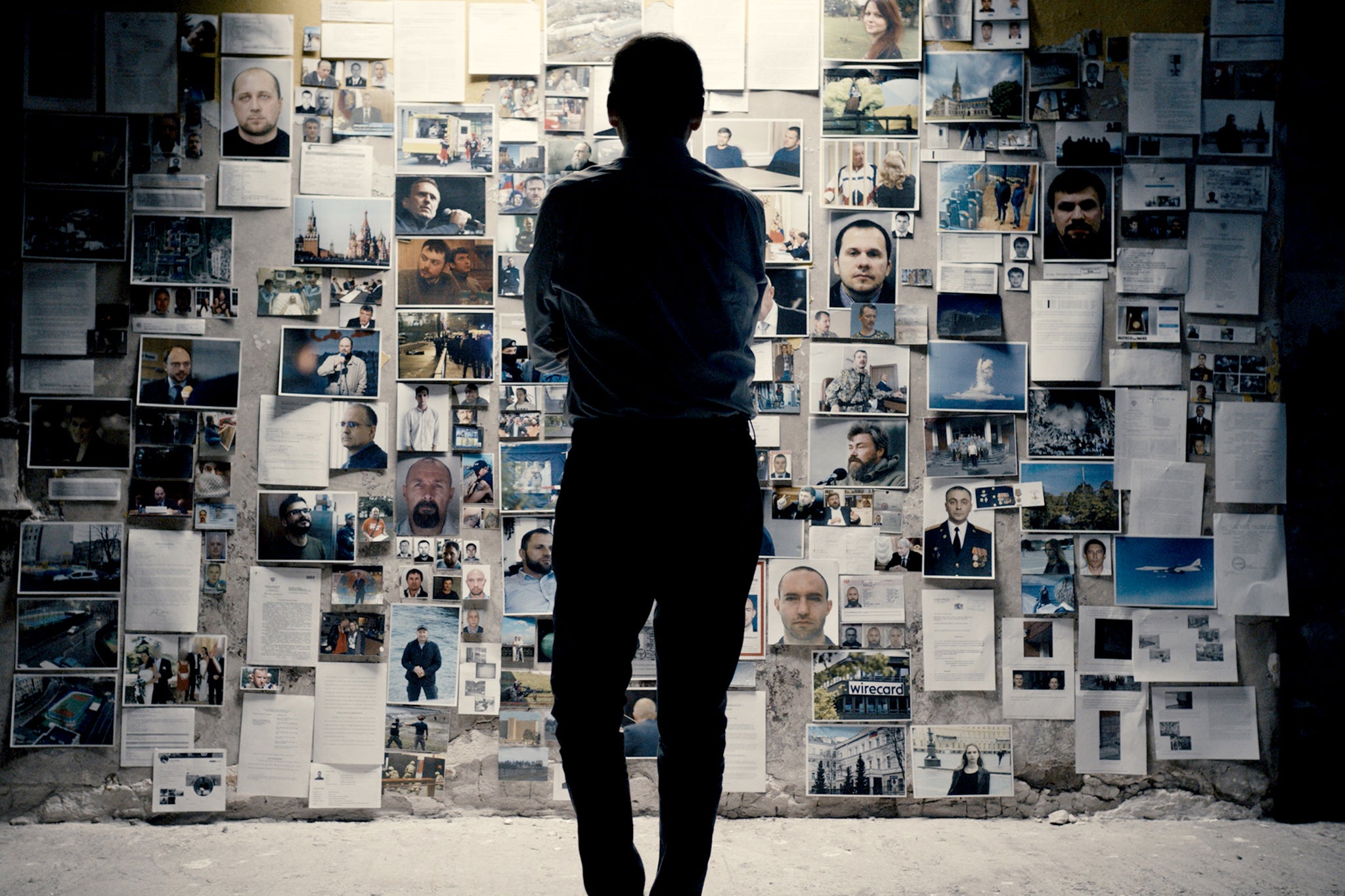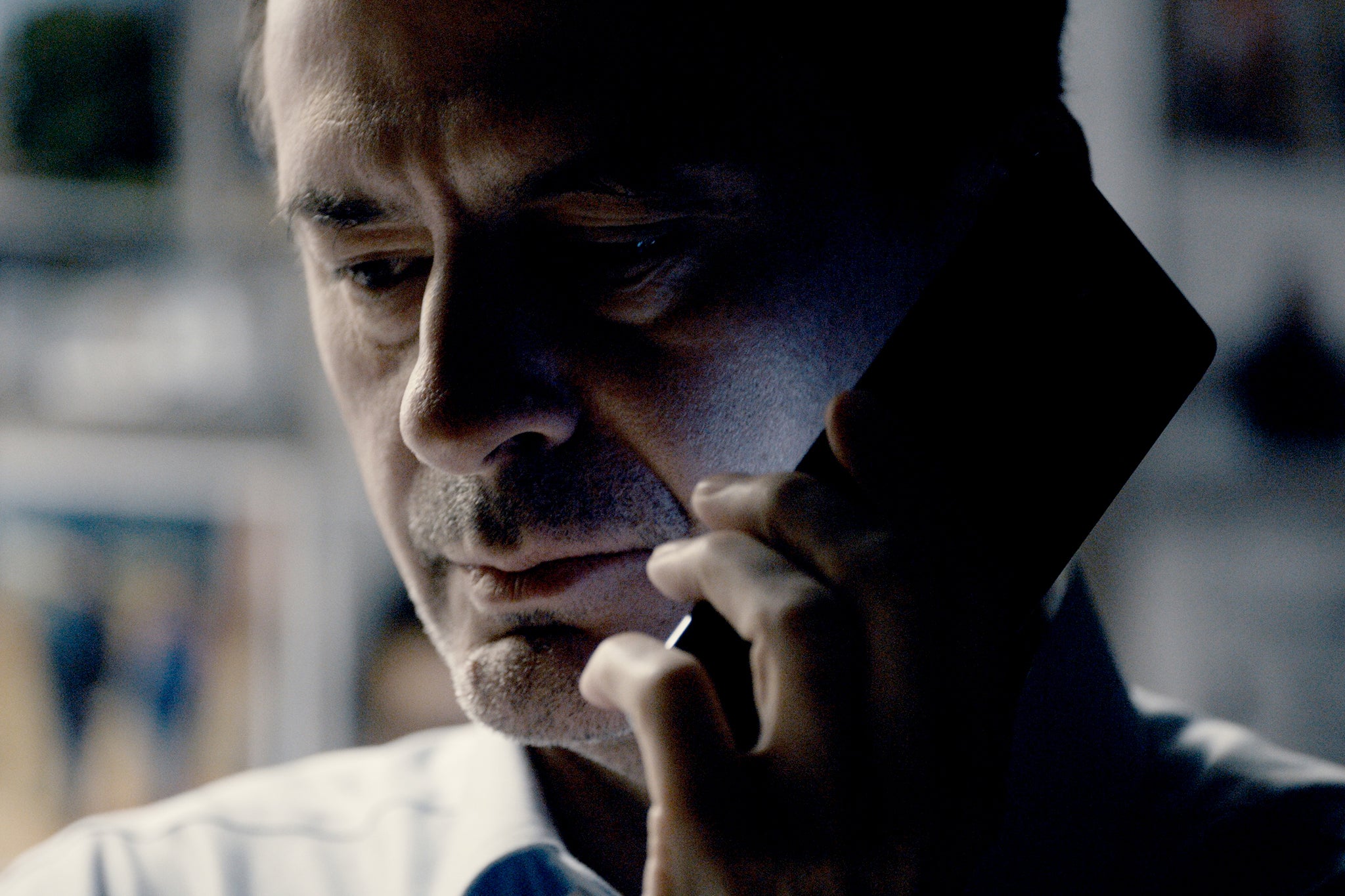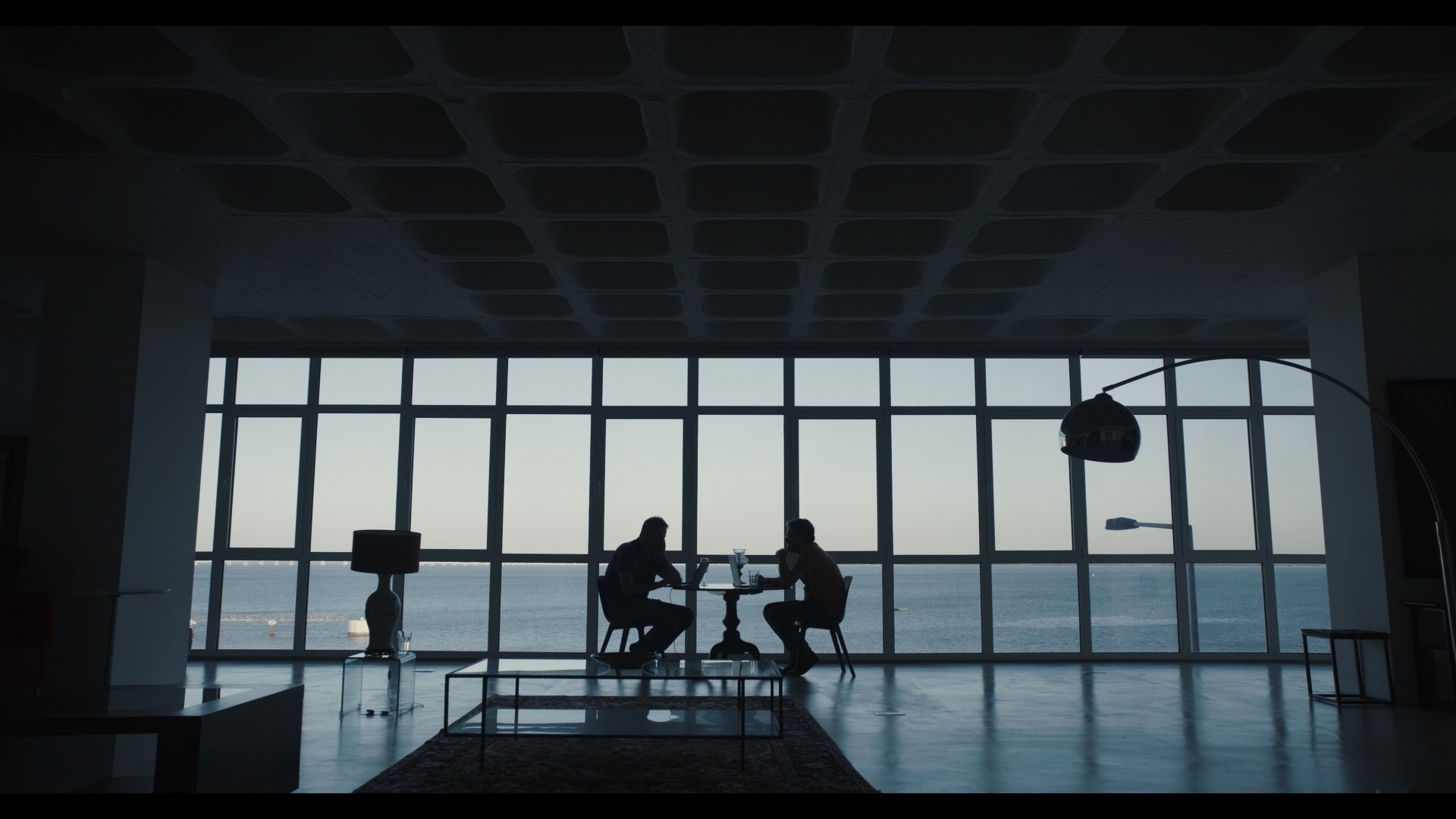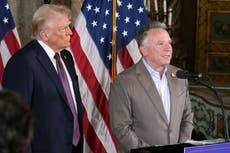What it’s really like to be on Putin’s kill list and hunted down by his murderous thugs
As the investigative journalist who exposed the perpetrators involved in the poisoning of Alexei Navalny and Sergei and Yulia Skripal in Salisbury, Christo Grozev won international plaudits. And then the Kremlin started to focus its sights on him, explains James Jones, whose new documentary exposes the full horror of what that feels like

When you imagine receiving the news that you’re on the kill list of one of the world’s cruellest dictators, you perhaps don’t imagine it while holding a glass of champagne. But, in January 2023, that’s exactly – or, almost exactly – what happened to Christo Grozev, an internationally renowned investigative journalist whom I had been filming for a documentary about his work for months, and who told me at a glitzy awards ceremony in New York that Vladimir Putin wanted him dead.
The Bulgarian-born journalist had long been rustling feathers at the Kremlin – his exceptional work for Bellingcat (a Netherlands-based investigative journalism group that Grozev headed up from 2015) exposed Putin’s killing network of spies and assassins.
Known as a “modern-day Sherlock”, he also unmasked the perpetrators involved in poisoning opposition leader Alexei Navalny and the poisoning of Sergei and Yulia Skripal in Salisbury, winning him global accolades. Still, neither of us quite expected that, while the rest of the room waited for their wine to be topped up, the grim reality of the situation would be revealed. He simply said, “I can’t go home.” The message said that intelligence had revealed there could be a “red team” waiting for him at home in Vienna, Austria. Now, the hunter had become the hunted.
By the time Grozev became one of Putin’s most wanted, I’d been following him around with a camera for more than a year. We were working on a documentary – Kill List: Hunted by Putin’s Spies – which started out as a story about Bellingcat.
They were unparalleled in their work using open source investigation to identify, track and expose assassins and spies working for the dictator across Europe. Over the three years we were filming, the doc went far beyond that brief. Rather than explaining the poison programme itself, the narrative changed. What we answered was what you risk when you speak out against the regime – the threats, the fear and the very human cost of putting yourself on the line to expose the truth.
We’d taken pretty extreme security measures from the very beginning – our story began with a whistleblower in possession of state secrets who risked everything to speak out against Putin’s poison programme. We spoke in code words using encrypted apps, worked out of a bunker-like room cut off from the rest of the production office. If I’m totally honest, after a while, I thought: this is a bit silly. I half convinced myself that we were being over the top; that no one really cared about what we were doing. You feel like you’re acting in a spy movie. And then police arrested part of a Bulgarian spy ring living in the UK. And then it all became real.
In New York, the day after the award ceremony, things were eerily normal. Grozev was definitely shaken by it – no doubt – but we naively thought that perhaps it could be resolved in a week or so; at that point, we didn’t realise the extent of the plot. We were really in the rhythm of filming by then and, to some extent, I think my presence made the knowledge that he couldn’t risk returning to Vienna, where his wife and children awaited him, a little easier to digest. Not because he wasn’t making huge and devastating sacrifices, but because it softened reality somehow – it was all happening through a lens.

Still, he was watchful. He had an app installed on his phone which was able to check hotel rooms for bugs. Occasionally, he attempted to wear a disguise, but they were always so bad – a terrible wig and some sunglasses that actually made him stand out more if anything. He only used tightly encrypted apps like Signal for work, and sometimes used a false name to travel under. His levels of stress were unimaginably high. In the documentary, he reveals that he went to a doctor who said they’d never seen such enormous, constant, unfluctuating stress in someone’s body.
Shortly after we found out he couldn’t go home, Grozev called his dad, who was worried, of course, as were his wife and children. It was these moments, when the enormous personal impact began to emerge, that began to hammer home what Grozev had given up in pursuit of justice. While the world sees him as an international superstar of investigative journalism, his family certainly doesn’t. To them, he’s dad – albeit one who his children couldn’t see. “Look at the mess you created,” his wife – who remains in remarkably good spirits – told him over the phone. Sadly, the worst was yet to come.

Three weeks after his name appeared on Putin’s kill list, his father stopped answering the phone. Grozev’s dad had always been a big influence on him – while his mother started him listening to Radio Free Europe (which was illegal) when he was nine years old, he described his dad as a “rebel” – anti-establishment, a bit of a hippy. “He was the only person who was really proud of what I was doing,” Grozev told me on camera after his dad was eventually found dead – no foul play was ever identified, but a later trial at the Old Bailey heard that spies had identified his father’s house, which raised his suspicions. He dealt with the loss and the guilt by throwing himself into work as usual. He had long wanted to take Putin down, but this was now becoming about as personal as it gets.
The more the story unfolded, the more surprising I found it. Bellingcat was started by citizen journalist and online sleuth Eliot Higgins in 2014, and cleverly uses information openly posted online to investigate war zones, human rights abuses and, of course, the criminal underworld. When Grozev joined, he took it a step further, because he understands the dark web and black marketplace for Russian data – phone records, passport travel records, parking fines, anything.
If there was a moment that the world needs reminding once more that Putin is a brutal murderer, a war criminal – this is it
Grozev found that most of the criminals following him were not trained “professional” Russian spies; they were just hired criminals. Which – as odd as this might sound looking in – is in one way reassuring: these guys are not going to get novichok and put it on your door knob. But that doesn’t mean they’re not dangerous. They were incredibly well-resourced, had sophisticated equipment, and their ambitions were pretty sinister. And, if you can just use money to get criminals to do bad stuff on tap, it’s much harder for someone like Grozev or the police to combat that threat.
From their messages, we know that, for instance, the first time we filmed Grozev, the spies knew as soon as he booked his flight to London that he was coming. There are some messages we don’t have, so we don’t know if they followed him from the airport to where we met. But they knew what he was doing, that’s for sure. So, by extension, they knew what we – what I – was doing too.
I didn’t really ever fear my own safety, though. There was one moment when, after three members of a Bulgarian spy ring in the UK were arrested for espionage on behalf of Russia, I discovered a chilling detail. These spies, for some reason, reviewed almost all of their trips on Google. So, when they were tailing Grozev in Valencia or Vienna, they would post a review – one of them I saw was a complaint about not having fresh towels, for example.

I thought, they can’t be this stupid, there must be a reason they’re doing it; communicating in code, or something. Then, weirdly, two days before the spies were arrested, there was a review from a beauty salon less than a minute from my house. The spy may not have even been there, and if she was, it might not have been to do with me. But it definitely stopped me in my tracks, it felt like too much of a coincidence.
Grozev is still boldly continuing his work. And, as the documentary airs, I hope his brilliance is further recognised and more discussion is prompted. You would think that a film saying “Putin is a bad guy” wouldn’t exactly be breaking news. But I think given what’s happening in the world at the moment, and Putin almost being welcomed back into the civilized groups of nations – Trump cosying up to him – it’s important.
I’ve never called myself an activist filmmaker before, despite tackling politically loaded subjects like the drug war in the Philippines, the untold devastation inflicted on children in Gaza and, more recently, the Chernobyl disaster. But if there was a moment that the world needs reminding once more that Putin is a brutal murderer, a war criminal – this is it.
As told to Zoe Beaty
Kill List: Hunted by Putin’s Spies is on Channel 4, Thursday 27 March. The feature documentary version, Antidote, is also playing in select cinemas.
Join our commenting forum
Join thought-provoking conversations, follow other Independent readers and see their replies
Comments


Bookmark popover
Removed from bookmarks